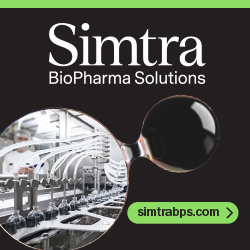VYNE Therapeutics Announces Phase 1b Data for FMX114 From Phase 1b/2a Trial for the Treatment of Mild-to-Moderate Atopic Dermatitis
VYNE Therapeutics Inc. recently announced it has completed the Phase 1b portion of a Phase 1b/2a clinical trial evaluating FMX114 for the treatment of mild-to-moderate atopic dermatitis (AD) (Study VY2021-01). FMX114 is VYNE’s proprietary investigational combination gel formulation of tofacitinib and fingolimod. The product is being developed to address both the source and cause of inflammation in AD. FMX114 has the potential to be the first topical combination product for the treatment of AD as well as the first topical product in clinical development that utilizes the sphingosine 1-phosphate receptor modulation mode of action.
The objective of the Phase 1b portion of the study was to evaluate the preliminary clinical safety, dermal tolerance and pharmacokinetics of FMX114 and vehicle gels when topically applied for up to 2 weeks to individual qualifying atopic dermatitis lesions. The study planned to enroll up to 6 subjects with mild to moderate atopic dermatitis in this Phase 1b safety portion. However, based on the data obtained from the first two completing subjects, the Human Research Ethics Committee (HREC) in Australia overseeing the study agreed to reduce the enrollment number to 4 subjects with mild to moderate atopic dermatitis.
At the study baseline visit, each subject had two AD lesions of comparable severity and extent based on the Atopic Dermatitis Severity Index (ADSI) scoring assessment and qualifying lesions were randomized to either FMX114 or vehicle gel treatment. Adverse events, clinical laboratory results and local dermal tolerance data was collected throughout subject participation in the study. Pharmacokinetics of tofacitinib, fingolimod and fingolimod 1-phosphate were evaluated based on blood/plasma concentration data obtained from highly sensitive and validated bioanalytical methods.
Both FMX114 and vehicle gel treatments were generally well-tolerated, and no serious adverse events were recorded during study conduct. Pharmacokinetics of tofacitinib, fingolimod and fingolimod 1-phosphate are summarized below:
- The mean plasma Cmax of tofacitinib calculated on treatment day 1 and day 14 were approximately 50-fold and 1500-fold lower, respectively, when compared to the equivalent data for the lowest commercially available adult oral dose of tofacitinib (XELJANZ 5mg BD).
- The mean plasma Cmax of tofacitinib was determined to be 0.914 ng/ml and 0.0220 ng/ml on treatment day 1 and 14 respectively (assay Lower Limit of Quantification [LLOQ]: 0.01ng/ml).
- Systemic drug accumulation of tofacitinib was negligible over the dosing period, with an accumulation ratio calculation based on Cmax of 0.03. In samples obtained one week after the end of treatment, tofacitinib was not quantifiable (<0.01ng/ml).
- The pharmacokinetics of fingolimod and active metabolite, fingolimod 1-phosphate could not be determined as all whole blood concentrations were below the assay LLOQ (0.08ng/ml for both analytes). The mean whole blood Cmax for fingolimod and fingolimod 1-phosphate for the adult oral dose of fingolimod (GILENYA 0.5mg QD) is 3.7ng/ml and 1.8ng/ml respectively at steady state.
Dr. Iain Stuart, Chief Scientific Officer of VYNE, said “FMX114 was designed to deliver both active drugs efficiently to the skin while minimizing their respective systemic exposures. We are encouraged by the results from the Phase 1b portion of study VY2021-01 and look forward to announcing top-line Phase 2a results later this quarter.”
The Phase 1b/2a study is a randomized, double-blinded trial designed to compare the safety and efficacy of FMX114 gel with vehicle gel. The study is expected to enroll up to 31 subjects, with each subject serving as their own control. The enrollment criteria specifies that subjects must have two comparable target AD lesions for treatment upon entry. Participants will have FMX114 gel applied to one of these lesions and vehicle gel to the other. Up to six subjects will be initially treated twice daily with FMX114 and vehicle for up to two weeks to evaluate preliminary safety of FMX114 and the pharmacokinetics of tofacitinib, fingolimod and fingolimod 1-phosphate. A further 25 subjects will receive FMX114, and vehicle treatment applied twice daily for four weeks in a double-blinded phase of the study to further evaluate safety, pharmacokinetics and efficacy. After completion of this phase, these subjects may continue into a two-week open-label treatment phase and will be able to apply the active drug to both lesions. The trial is being conducted in Australia in subjects with mild-to-moderate atopic dermatitis (clinicaltrials.gov link) in two segments.
FMX114 is VYNE’s proprietary investigational combination gel formulation of tofacitinib and fingolimod. The product is being developed to address both the source and cause of inflammation in AD by developing a distinct combination of tofacitinib (a Janus kinase inhibitor) aimed at reducing inflammation by inhibiting cytokine release from inflammatory cells) and fingolimod (a Sphingosine 1-phosphate receptor modulator) which approaches the reduction of inflammation by inhibiting migration of inflammatory cells, and in addition may also directly support skin barrier recovery. FMX114 has the potential to be the first topical combination product for the treatment of AD as well as the first topical product in clinical development that utilizes the sphingosine 1-phosphate receptor modulation mode of action.
Atopic dermatitis (AD) is a chronic, severe form of eczema that is characterized by the appearance of dry, red, and itchy skin. AD most commonly affects the cheeks, arms, and legs. Flare ups often occur and symptoms can worsen leading to more-intense itching and worsening of disease. AD flares are triggered by stress, temperature changes, sweat, various skin irritants, and allergies. AD can have a wide-ranging impact on quality of life and there is a substantial monetary burden from direct and indirect costs to this patient population. While AD occurs most often in childhood, it can develop at any point in a person’s lifetime and affects approximately 30 million people in the US alone. Approximately 22 million of those diagnosed are on treatment, with 19 million registering mild to moderate disease. According to Symphony Health data, there were over 7 million prescriptions written in 2019 alone for the treatment of AD.
VYNE’s mission is to improve the lives of patients by developing proprietary, innovative, and differentiated therapies for the treatment of immuno-inflammatory conditions. The company’s unique and proprietary pipeline includes FMX114 for the potential treatment of mild-to-moderate atopic dermatitis and access to a library of bromodomain and extra-terminal (BET) domain inhibitors in both topical and oral forms for the potential treatment of major immuno-inflammatory conditions and rare skin diseases.
Total Page Views: 745

















